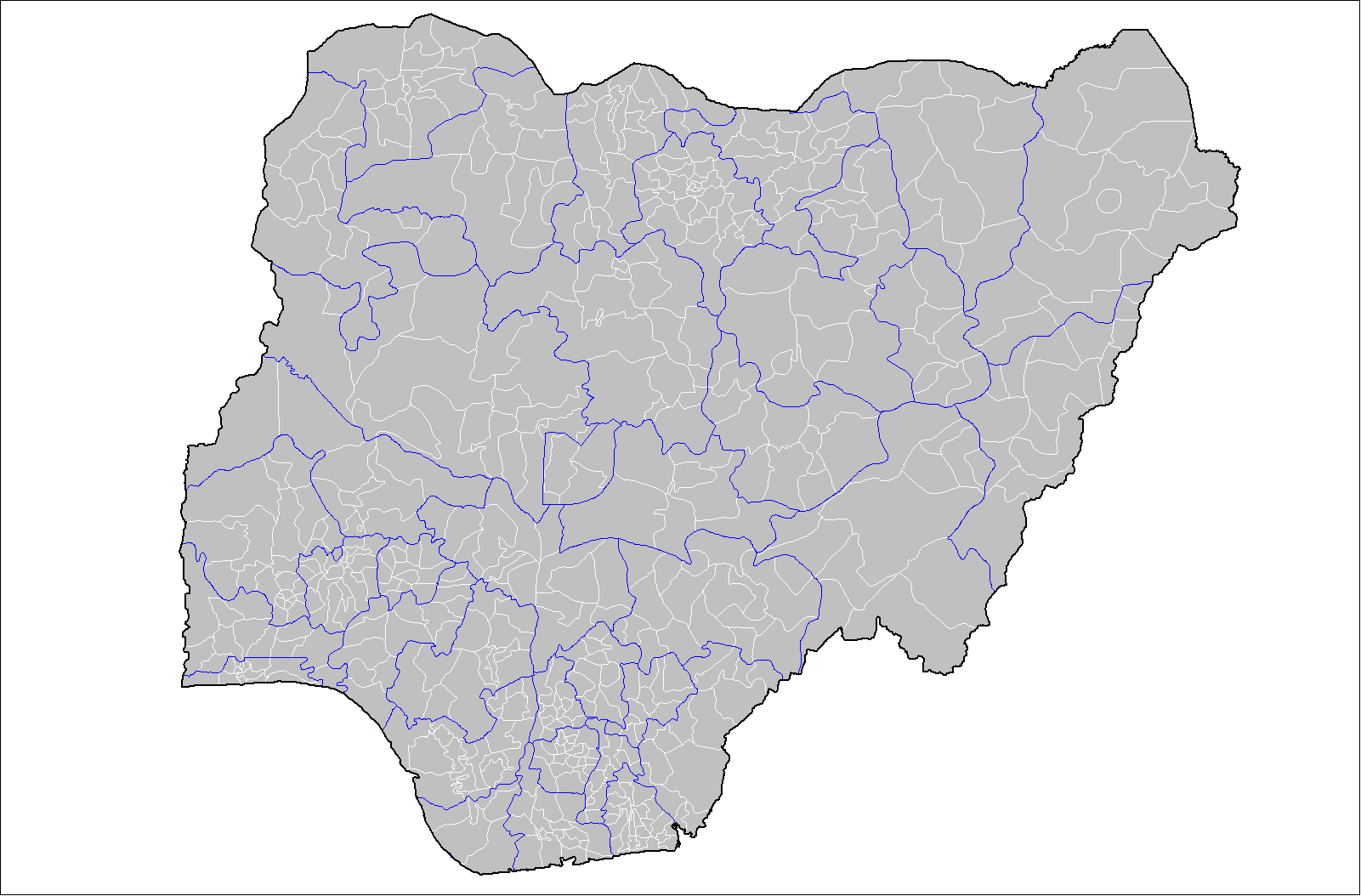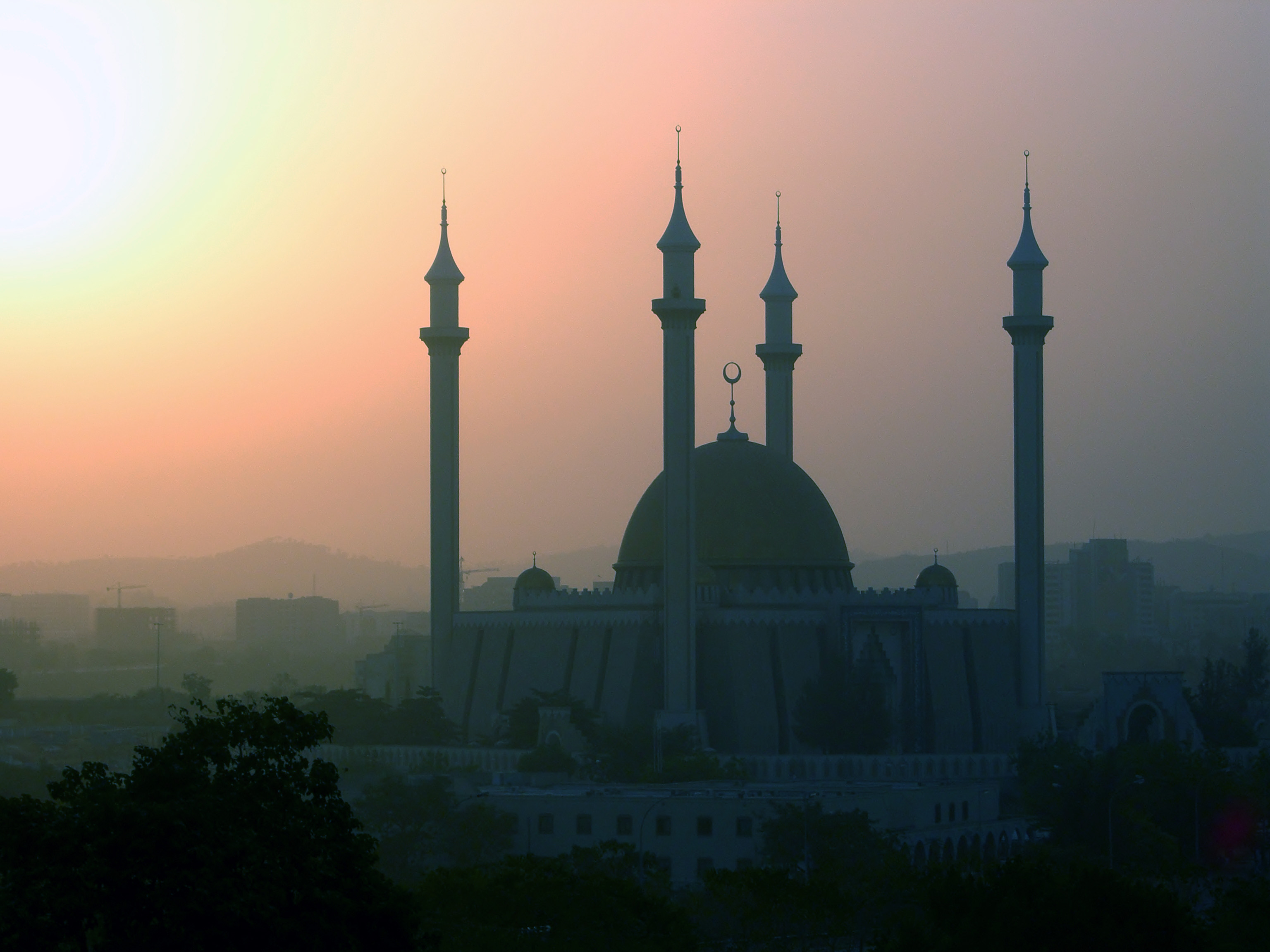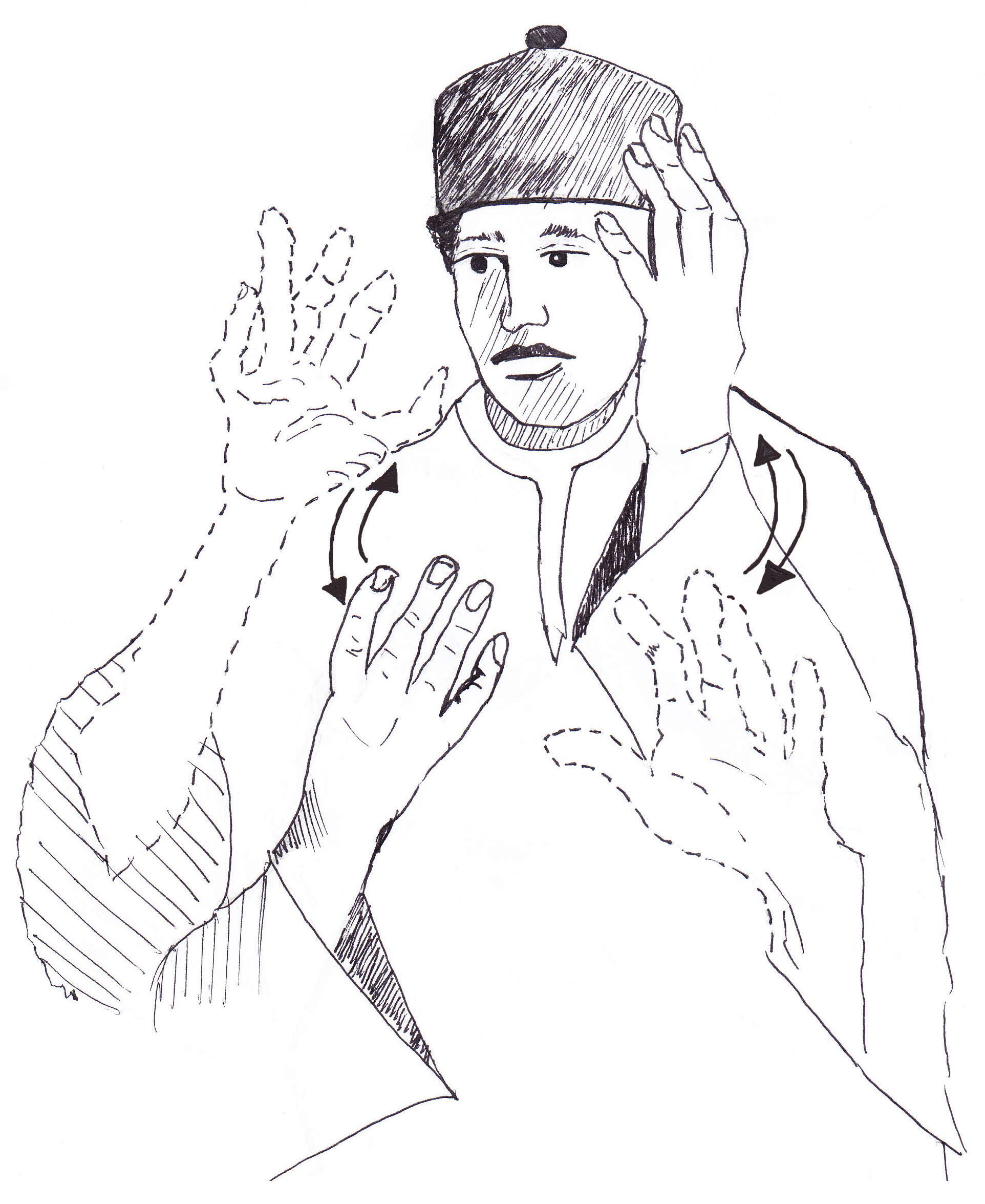|
Yauri, Nigeria
Yauri is a Local Government Area in Kebbi State, northwestern Nigeria. It is the location of the Yauri Emirate, one of the smallest historical emirates in Northern Nigeria. In 1972, the population of the division was about 112,000 people inhabiting a land area of about and scattered over six major districts. Demographics Yauri's ethnic groups include Shangawa, Gungawa, Dukawa, Kamberi, Hausa people, Nupe, Yoruba and Kanuri. However, the predominance of Hausa's in the socio-political structure of northern Nigeria has gradually increased the transformation of some of the dominant ethnic groups in Yauri to become Hausanized. Today, the Hausa people constitute the governing class of Yauri. The Reshe people consider Yauri to be their ancient city. Today, the Hausa language is the main language. Climate The rainy season is usually between June and October, however, rain sometimes starts in April or May. During the rainy season most farmers favor harvesting their crops, plant ... [...More Info...] [...Related Items...] OR: [Wikipedia] [Google] [Baidu] |
Local Government Areas Of Nigeria
Nigeria has 774 local government areas (LGAs), each administered by a local government council consisting of a chairman, who is the chief executive, and other elected members, who are referred to as councillors. Each LGA is further subdivided into a minimum of ten and a maximum of twenty wards. A ward is administered by a councillor, who reports directly to the LGA chairman. The councillors fall under the legislative arm of the local government, Local Government, the third tier of government in Nigeria, below the state governments and the federal government. Functions The functions of local governments are detailed in the Constitution of Nigeria, Nigerian constitution and include the following: * Economic recommendations to the State. * Collection of taxes and fees. * Establishment and maintenance of cemeteries, burial grounds and homes for the destitute or infirm. * Licensing of bicycles, trucks (other than mechanically propelled trucks), canoes, wheelbarrows and carts. * Esta ... [...More Info...] [...Related Items...] OR: [Wikipedia] [Google] [Baidu] |
Hausa People
The Hausa (Endonym, autonyms for singular: Bahaushe (male, m), Bahaushiya (female, f); plural: Hausawa and general: Hausa; exonyms: Ausa; Ajami script, Ajami: ) are a native ethnic group in West Africa. They speak the Hausa language, which is the second most spoken language after Arabic in the Afro-Asiatic languages, Afro-Asiatic language family. The Hausa are a culturally homogeneous people based primarily in the Sahelian and the sparse savanna areas of southern Niger and northern Nigeria respectively, numbering around 86 million people, with significant populations in Benin, Cameroon, Ivory Coast, Chad, the Central African Republic, Togo, and Ghana, as well as smaller populations in Sudan, Eritrea, Equatorial Guinea, Gabon, Senegal, and Gambia. Predominantly Hausa-speaking communities are scattered throughout West Africa and on the traditional Hajj route north and east traversing the Sahara, with an especially large population in and around the town of Agadez. Other Hausa have al ... [...More Info...] [...Related Items...] OR: [Wikipedia] [Google] [Baidu] |
Harmattan
The Harmattan is a season in West Africa that occurs between the end of November and the middle of March. It is characterized by the dry and dusty northeasterly trade wind, of the same name, which blows from the Sahara over West Africa into the Gulf of Guinea. The name is related to the word in the Twi language. The temperature is cold mostly at night in some places but can be very hot in certain places during daytime. Generally, temperature differences can also depend on local circumstances. The Harmattan blows during the dry season, which occurs during the months with the lowest sun. In this season, the subtropical ridge of high pressure stays over the central Sahara and the low-pressure Intertropical Convergence Zone (ITCZ) stays over the Gulf of Guinea. On its passage over the Sahara, the Harmattan picks fine dust and sand particles (between 0.5 and 10 microns). It is also known as the "doctor wind", because of its invigorating dryness compared with humid tropical air. ... [...More Info...] [...Related Items...] OR: [Wikipedia] [Google] [Baidu] |
Rainy Season
The rainy season is the time of year when most of a region's average annual rainfall occurs. Rainy Season may also refer to: * ''Rainy Season'' (short story), a 1989 short horror story by Stephen King * "Rainy Season", a 2018 song by Monni * '' The Rainy Season'', a 1993 album by Marc Cohn * ''The Rainy Season'', a 1999 novel by James Blaylock * ''Rainy Seasons'' (film), a 2010 Iranian film {{disambiguation ... [...More Info...] [...Related Items...] OR: [Wikipedia] [Google] [Baidu] |
Hausa Language
Hausa (; / ; Hausa Ajami, Ajami: ) is a Chadic language spoken primarily by the Hausa people in the northern parts of Nigeria, Ghana, Cameroon, Benin and Togo, and the southern parts of Niger, and Chad, with significant minorities in Ivory Coast. A small number of speakers also exist in Sudan. Hausa is a member of the Afroasiatic language family and is the most widely spoken language within the Chadic branch of that family. Despite originating from a non-tonal language family, Hausa utilizes differences in pitch to distinguish words and grammar. ''Ethnologue'' estimated that it was spoken as a first language by some 58 million people and as a second language by another 36 million, bringing the total number of Hausa speakers to an estimated 94 million. In Nigeria, the Hausa film industry is known as Kannywood. Classification Hausa belongs to the West Chadic languages subgroup of the Chadic languages group, which in turn is part of the Afroasiatic languages, Afro ... [...More Info...] [...Related Items...] OR: [Wikipedia] [Google] [Baidu] |
Hausa Sign Language
Hausa Sign Language (HSL; or ) is the indigenous sign language of the Deaf community Deafness has varying definitions in cultural and medical contexts. In medical contexts, the meaning of deafness is hearing loss that precludes a person from understanding spoken language, an audiological condition. In this context it is written ... in northern Nigeria. Overview There are no statistics on the number of deaf people in northern Nigeria or in Nigeria in general or on the number of people who use Hausa Sign Language. Estimates as to the number of signers using this language "vary greatly, from 70,000 to five million".Schmaling, Constanze. 2015. ''Sign Languages of the World: A Comparative Handbook'', Julie Bakken Jepsen, Goedele De Clerck, Sam Lutalo-Kiingi, William B. McGregor, (eds.), 362-390. Berlin: Walter de Gruyter. DOI: https://doi.org/10.1515/9781614518174 There is no information on the origin of Hausa Sign Language, but it is believed that deaf people have always used ... [...More Info...] [...Related Items...] OR: [Wikipedia] [Google] [Baidu] |
Kanuri People
The Kanuri people (Kanouri, Kanowri, also Yerwa, Barebari and several subgroup names) are an African ethnic group living largely in the lands of the former Kanem and Bornu Empires in Niger, Nigeria, Chad, and Cameroon, as well as a diaspora community residing in Sudan. Those generally termed Kanuri include several subgroups and dialect groups, some of whom identify as distinct from the Kanuri. Most trace their origins to ruling lineages of the medieval Kanem–Bornu Empire, and its client states or provinces. In contrast to the neighboring Toubou or Zaghawa pastoralists, Kanuri groups have traditionally been sedentary, engaging in farming, fishing the Chad Basin, trade, and salt processing. Background Kanuri peoples include several subgroups, and identify by different names in some regions. The Kanuri language was the major language of the Bornu Empire and remains a major language in southeastern Niger, northeastern Nigeria and northern Cameroon, but in Chad it is limited t ... [...More Info...] [...Related Items...] OR: [Wikipedia] [Google] [Baidu] |
Yoruba People
The Yoruba people ( ; , , ) are a West African ethnic group who inhabit parts of Nigeria, Benin, and Togo, which are collectively referred to as Yorubaland. The Yoruba constitute more than 50 million people in Africa, are over a million outside the continent, and bear further representation among the African diaspora. The vast majority of Yoruba are within Nigeria, where they make up 20.7% of the country's population according to Ethnologue estimations, making them one of the largest List of ethnic groups of Africa, ethnic groups in Africa. Most Yoruba people speak the Yoruba language, which is the Niger–Congo languages, Niger-Congo language with the largest number of native or L1 speakers. Geography In Africa, the Yoruba culture, Yoruba are contiguous with the Yoruboid languages, Yoruboid Itsekiri to the south-east in the northwest Niger Delta, Bariba people, Bariba to the northwest in Benin and Nigeria, the Nupe people, Nupe to the north, and the Ebira to the northeast in ... [...More Info...] [...Related Items...] OR: [Wikipedia] [Google] [Baidu] |
Nupe People
The Nupe (traditionally called the ''Nufawa'' by the Hausa people, Hausas and ''Tapa'' by the neighbouring Yoruba people, Yoruba) are an ethnic group native to North Central Nigeria. They are the dominant ethnic group in Niger State and an important minority in Kwara State. The Nupe are also present in Kogi State and The Federal Capital Territory. History The Nupe Kingdom emerged in the 14th-15th century, nestled between the Niger and Kaduna rivers. However, Nupe as a group and polity have a rich history dating back to 9,000 B.C. or 40,000 years ago in the Middle Niger and Niger-Benue confluence areas. Most accounts of the ancient kingdom were verbally transmitted legends. Notably, King Jibiri adopted Islam around 1770, marking a significant milestone. In the 1800s, Ma'azu's rule saw the Nupe Kingdom flourish, becoming the most powerful in Central Nigeria. Today, the Nupe people speak over 5 dialects: Central Nupe, Nupe Tako/Bassa-Nge, Kupa, Kakanda, and Dibo/Abawa/Gana-Gana. N ... [...More Info...] [...Related Items...] OR: [Wikipedia] [Google] [Baidu] |
Kambari Languages
The Kambari or Kamberi languages) are a cluster of Kainji languages spoken in northwestern Nigeria (Kebbi State and Niger State). Geographic distribution The Kambarri languages are spoken in Kebbi and Niger States, Nigeria. There are also some speakers in other parts of Nigeria, including Zamfara State and Abuja. Languages The Kambari languages are:Roger Blench, 2010The Kambari languages/ref> * Kambari ** Kambari I: *** Gadi language (Nigeria), Gadi *** Vadi language, Vadi *** Cishingini language, Cishingini *** Tsingini language, Tsishingini *** Baangi language, Baangi *** Yumu language (Nigeria), Yumu ** Kambari II: *** Tsikimba language, Tsikimba *** Gaushi language, Gaushi *** Wenci language, Wenci References Kambari languages, Kainji languages {{Kainji-lang-stub ... [...More Info...] [...Related Items...] OR: [Wikipedia] [Google] [Baidu] |
States Of Nigeria
Nigeria is a federation of 36 states, each of which is a semi-autonomous political unit that shares power with the federal government as enumerated under the Constitution of Nigeria, Constitution of the Federal Republic of Nigeria. In addition to the states, there is the Federal Capital Territory (Nigeria), Federal Capital Territory (FCT), in which the capital city of Abuja is located. The FCT is not a state, but a territory of the federal government, governed by Federal Capital Territory Administration, an administration headed by List of ministers of the Federal Capital Territory (Nigeria), a minister. Each state is subdivided into Local government areas of Nigeria, local government areas (LGAs). There are 774 local governments in Nigeria. Under the Nigerian Constitution, the 36 states enjoy substantial autonomy but are not sovereign entities, as ultimate authority lies with the federal government. Amendments to the constitution can be proposed by the National Assembly, but ... [...More Info...] [...Related Items...] OR: [Wikipedia] [Google] [Baidu] |
Duka Language
Hun-Saare or Duka is a Kainji language of Nigeria Nigeria, officially the Federal Republic of Nigeria, is a country in West Africa. It is situated between the Sahel to the north and the Gulf of Guinea in the Atlantic Ocean to the south. It covers an area of . With Demographics of Nigeria, .... The eastern and western dialects are known as Hun (Ut-Hun) and Saare (Us-Saare), but speakers use ''Saare'' for both. References Further reading *Sociolinguistic survey of the Duka (Hun-Saare) people' Northwest Kainji languages Languages of Nigeria {{kainji-lang-stub ... [...More Info...] [...Related Items...] OR: [Wikipedia] [Google] [Baidu] |






